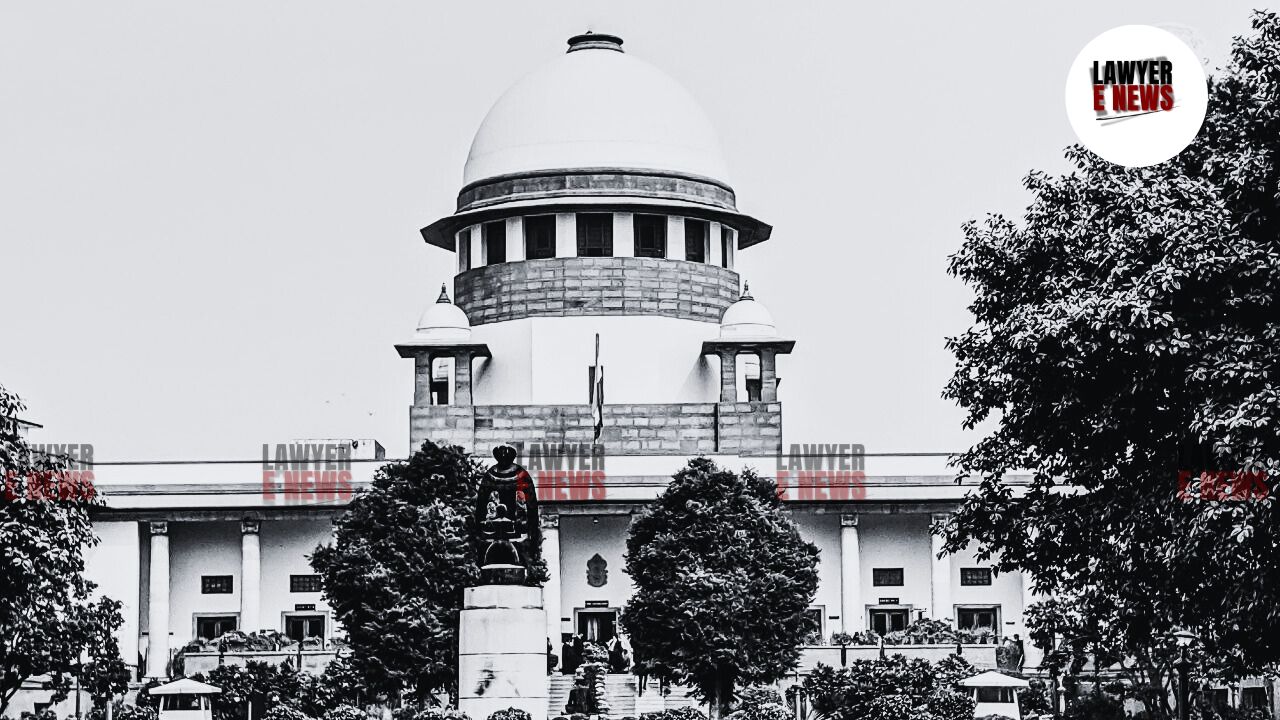-
by Admin
16 February 2026 1:47 PM



Excess Payments Made by Employer’s Mistake Cannot Be Recovered from Retired Class III Employees: Supreme Court quashes recovery orders against retired stenographers; reaffirms protection against post-retirement recoveries in absence of fraud. Supreme Court of India delivered a significant judgment in Jogeswar Sahoo & Others vs. The District Judge, Cuttack & Others, setting aside orders that directed recovery of financial benefits from retired Stenographers. The Court emphasized that such recoveries, when made without affording any opportunity of hearing and in absence of any fraud or misrepresentation by the employee, are "unsustainable in law and contrary to settled principles of equity."
The Court reiterated that recovery in such circumstances imposes undue hardship and violates established legal norms, especially when the payments were made years before retirement and at the employer’s own volition based on an interpretation of applicable policy.
“No Misrepresentation, No Fraud, No Hearing – Recovery After
Retirement Cannot Be Sustained”
The dispute arose when the District Judiciary of Cuttack, Odisha, issued orders in 2023 directing retired employees to refund amounts paid to them in 2017 following retrospective promotions granted in terms of the Shetty Commission’s recommendations. These promotions had been approved by the District Judge and led to financial benefits ranging between ₹21,485 and ₹40,713.
The appellants had already retired in 2020. However, recovery was ordered three years later, allegedly on the basis that the financial upgradation was based on an erroneous interpretation of the Shetty Commission’s report. No notice or hearing was given before issuing these recovery orders.
The Supreme Court noted, “It is not reflected in the record that such payment was made to the appellants on account of any fraud or misrepresentation by them.” The Court further held, “It is also an admitted position that the appellants were not afforded any opportunity of hearing before issuing the order of recovery.”
Can State Recover Excess Payments Made Due to Its Own Error from Retired Employees?
The Court framed the key issue as not being the legality of the promotion or the grant of financial benefits, but whether recovery from retired employees — without hearing, and without fraud or misrepresentation — could be justified.
Answering this, the bench comprising Justices Prashant Kumar Mishra and Pamidighantam Sri Narasimha held such recovery to be impermissible in law. The judgment draws heavily from prior Supreme Court decisions including:
“If the excess amount was not paid on account of any misrepresentation or fraud on the part of the employee… such excess payments are not recoverable,” the Court quoted from Thomas Daniel vs. State of Kerala (2022).
The Court reaffirmed the equity-based principle that protects employees — particularly those in lower rungs — from financial hardship arising out of recoveries of amounts paid to them under official orders, even if later found erroneous.
"Recovery from Class III/IV Employees After Retirement Is Harsh and Iniquitous": SC Cites Rafiq Masih
The Court also quoted from State of Punjab vs. Rafiq Masih, laying down specific scenarios where recovery is legally impermissible:
“(i) Recovery from employees belonging to Class III and IV service… (ii) Recovery from retired employees… (iii) Recovery when the excess payment has been made for a period in excess of five years before the order of recovery…”
In this case, the appellants, all Class III employees, had retired in 2020. The benefits in question were granted in 2017, and recovery was initiated in 2023 — clearly falling within the prohibited category of recoveries under Rafiq Masih.
The Court held emphatically: “Applying the principle enunciated by this Court… the recovery is found unsustainable.”
Allowing the appeal, the Supreme Court quashed both the High Court judgment and the recovery orders dated 08.09.2023 and 12.09.2023. It concluded: “We allow the appeal and set aside the order of the High Court and in consequence the orders… by which the appellants were directed to deposit the excess drawn arrears are set aside.”
Date of Decision: April 4, 2025
